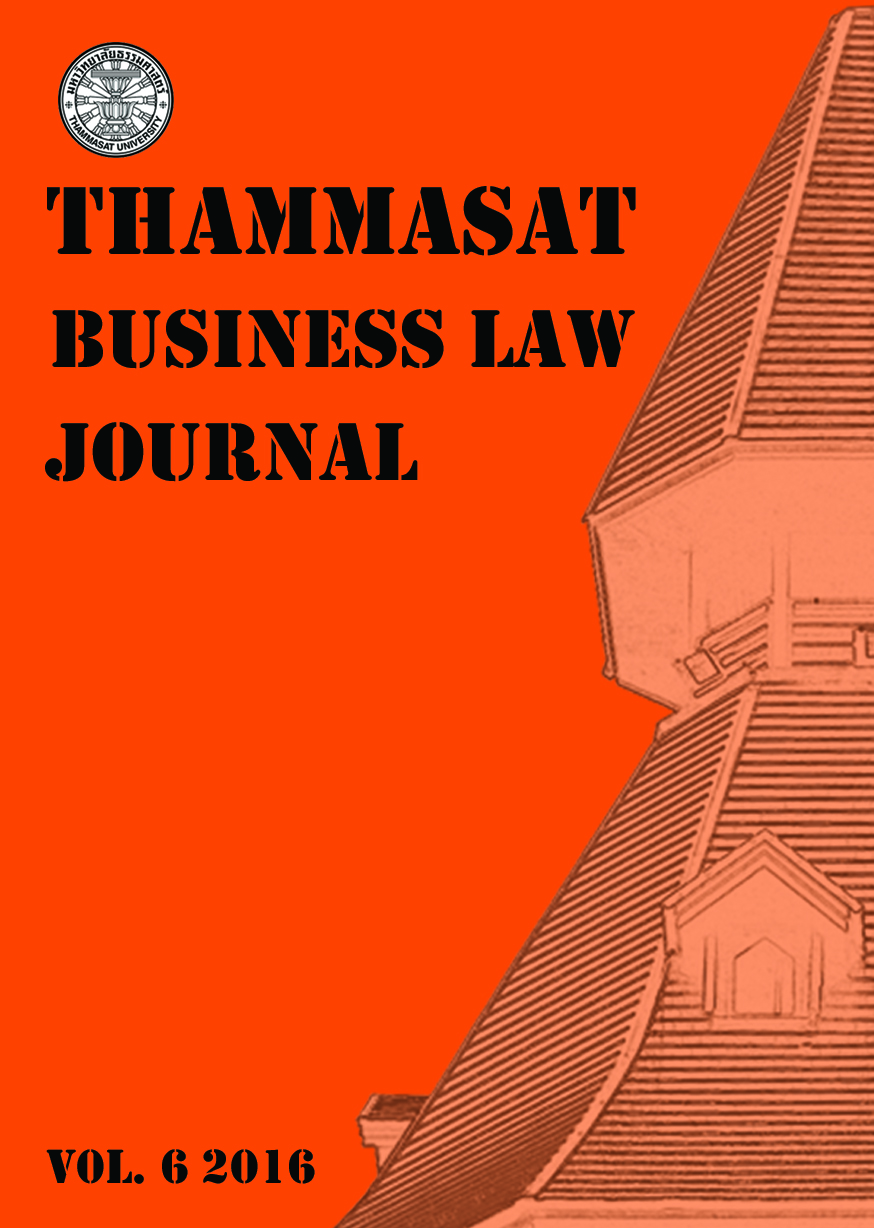CORPORATE INCOME TAXATION ON CROSS-BORDER LEASING
Main Article Content
Abstract
Under the Thai Revenue Code, other relevant laws and regulations, cross-border leasing business can gain the tax benefits only in the form of tax depreciation. This tax depreciation is unable to attract and facilitate the export of cross-border leasing transaction. Thailand’s corporate income taxation on cross-border leasing still does not provide the adequate provision for granting a tax incentive to the export of cross-border leasing to the lessee in ASEAN member countries as well as measures to control a use of corporate income tax incentive accurately.
Therefore, this article presents the study of the corporate income taxation on cross-border leasing to illustrate in two issues: 1) tax incentive for the export of cross-border leasing to the lessee in ASEAN member countries; and 2) measures to control the use of such tax incentive under Thai laws.
Article Details
References
Comptroller of the Currency. Lease Financing Comptroller’s Handbook January 1998. Washington, D.C.: Office of the Comptroller of the Currency, 1998.
Wainman, David. Leasing. London: Waterlow Publishers, 1991.
กลุ่มนักวิชาการภาษีอากร. ภาษีอากรตามประมวลรัษฎากร 2557. กรุงเทพมหานคร: เรือนแก้วการพิพม์, 2557. (Group of Tax Scholars. Taxation According to Revenue Code 2014. Bangkok: Ruenkaew Karnpim, 2014).
ASEAN Secretariat. “ASEAN Economic Community.” ASEAN. http://www.asean. org/communities/asean -economic-community (accessed January 6, 2015).
FLA. “Types of Leasing.” FLA. http://www.fla.org.uk/business/types-of-leasing (accessed June 26, 2015).
Investopedia. “Time Value of Money - TVM.” Investopedia. http://www.investopedia. com/terms/t/timevalueofmoney.asp (accessed December 10, 2014).


